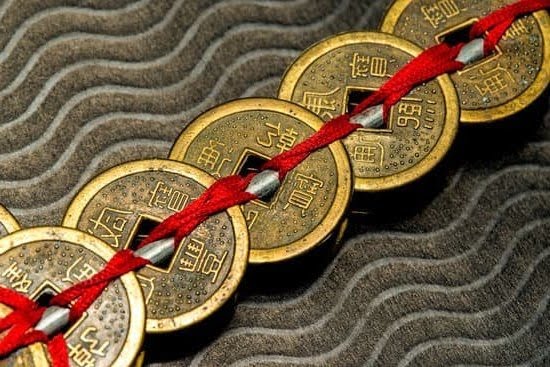Feng Shui is an ancient Chinese practice that focuses on harmonizing individuals with their surrounding environment. In Feng Shui, the arrangement and energy flow within a space are believed to affect one’s health, happiness, and abundance.
House numbers hold significant importance in Feng Shui as they are believed to carry specific energies and vibrations that can impact the overall harmony of a living space. Understanding the meaning of house numbers in Feng Shui is key to creating a balanced and favorable environment for residents.
As we delve into the world of Feng Shui and house numbers, it’s important to recognize the profound impact this practice can have on shaping our daily lives. By considering the energy associated with specific numbers, we gain insight into how these numerical vibrations can influence our well-being and overall prosperity within our homes.
Throughout this article, we will explore the interpretation of single digit house numbers (1-9) as well as compound house numbers (e.g. 11, 22, 33) in relation to Feng Shui principles.
Additionally, we will provide practical tips on selecting favorable house numbers, enhancing or balancing a home’s energy using specific numbers, and harmonizing house numbers with personal birth charts for maximum positive energy flow. Join us in discovering the intricate meaning of house numbers in Feng Shui and how they can contribute to creating a harmonious living space.
Understanding the Energy of House Numbers
House numbers are not just a series of digits that serve as a mailing address or identification for a property. In Feng Shui, the energy and vibrations associated with each house number are believed to influence the overall harmony and well-being of its inhabitants. Understanding the energy of house numbers is crucial in creating a balanced living space according to Feng Shui principles.
In Feng Shui, each house number carries its own unique energy and symbolism. For example, the number 1 is associated with independence, new beginnings, and leadership. On the other hand, the number 7 signifies spiritual growth, introspection, and analysis. It is important for individuals to consider the energy of their house number when seeking to create a harmonious environment within their home.
Moreover, understanding the significance of each number in relation to Feng Shui can help individuals make informed decisions about selecting or enhancing their house numbers. Whether choosing a new property or seeking to improve the energy flow within an existing home, being mindful of the meaning of house numbers in Feng Shui can contribute to a more supportive and positive living environment.
| Number | Energy | Symbolism |
|---|---|---|
| 1 | Independence & Leadership | New beginnings |
| 7 | Spiritual Growth & Introspection | Analysis |
Interpretation of Single Digit House Numbers
When it comes to the meaning of house numbers in Feng Shui, single digit house numbers (1-9) play a crucial role in determining the energy of a home. Each number carries its own unique symbolism and vibrational qualities, influencing the overall harmony and balance within the living space. In Feng Shui, understanding the interpretation of these single digit house numbers is essential for creating a supportive environment that aligns with the needs and aspirations of the occupants.
In Feng Shui, the number 1 represents independence, individuality, and new beginnings. Homes with a number 1 address are associated with creativity, leadership, and forward momentum. On the other hand, the number 2 symbolizes partnerships, balance, and cooperation. Houses with a number 2 address are believed to promote harmonious relationships and a sense of unity within the household.
Moving on to the number 3, it is linked to communication, self-expression, and social connections. A house with a number 3 address may foster creativity, joyfulness, and open communication among family members. The number 4 in Feng Shui represents stability, security, and practicality. Homes with this number are believed to provide a grounding energy that supports long-term success and well-being.
Further interpretations of single digit house numbers continue all way up to nine.
| Single Digit House Number | Meaning and Symbolism |
|---|---|
| 1 | Independence, individuality,new beginnings |
| 2 | Partnerships,balance,and cooperation. |
Interpretation of Compound House Numbers
Compound house numbers, also known as master numbers in numerology, hold a special significance in Feng Shui. These numbers are considered to carry a higher vibration and energy, often representing amplified aspects of the single digit numbers they are composed of. Understanding the interpretation of compound house numbers is essential for harnessing their powerful influence on the energy of a home.
In Feng Shui, compound house numbers such as 11, 22, and 33 are interpreted as master numbers that possess intensified spiritual and energetic qualities. These numbers are associated with heightened potential for growth, manifestation, and enlightenment. Here’s a closer look at the interpretation of these compound house numbers:
- 11: The number 11 is often referred to as the “spiritual messenger” in Feng Shui. It carries the energies of intuition, psychic abilities, and spiritual awakening. In a home with an 11 address, there may be an increased sense of inspiration and self-discovery.
- 22: Known as the “master builder” number in numerology, 22 symbolizes building a solid foundation for the future. When this number is associated with a house address, it can signify an environment conducive to material manifestation and long-term success.
- 33: Considered the “master teacher” number, 33 embodies compassion, guidance, and nurturing energy. A home with this address may foster a supportive and harmonious atmosphere where individuals can fulfill their potential and contribute positively to the world.
Understanding the significance of compound house numbers in Feng Shui allows homeowners to tap into their unique energies for manifesting positive changes in their living space. Whether it’s cultivating creativity, fostering stability or nurturing compassion within the household, compound house numbers play an influential role in shaping the energy of a home.
By aligning personal intentions with the meaning behind these master numbers, individuals can create an environment that supports their aspirations while promoting harmonious living. Whether through intentional decor choices or mindfulness practices within the home, leveraging the power of compound house numbers can enhance overall well-being according to Feng Shui principles.
Practical Applications of House Numbers in Feng Shui
When it comes to the practice of Feng Shui, the selection of a favorable house number is believed to play a crucial role in harnessing positive energy and creating a harmonious living space. In Feng Shui principles, each house number carries its own unique energy and vibrations, which can impact the overall well-being of the occupants.
Therefore, understanding how to apply these principles to your home’s house number can be essential for enhancing or balancing the energy within your living space.
Choosing a Favorable House Number
In order to optimize the energy flow within your home, it is important to select a favorable house number based on Feng Shui guidelines. One common approach is to consider the individual meanings of single-digit numbers and their influence on different aspects of life.
For example, the number 1 is associated with new beginnings and independence, while the number 9 signifies fulfillment and humanitarianism. By understanding these associations, you can choose a house number that aligns with your personal aspirations and goals.
Enhancing Energy Through Numbers
Once you have selected a house number, there are also practical ways to enhance or balance its energy within your home. This can be done through the use of feng shui remedies such as adding specific colors or elements that correspond to the energy of your chosen number.
For instance, if your house has a number related to creativity and communication, you may want to incorporate vibrant artwork or decorative items in areas associated with those attributes. By incorporating these enhancements based on your house number’s symbolism, you can work towards fostering a more positive and supportive environment in your living space.
Avoiding Negative Connotations
Additionally, it’s important to consider potential negative connotations associated with certain house numbers according to Feng Shui principles. For example, some numbers may carry energies that are believed to bring about financial challenges or relationship difficulties.
In this case, individuals may choose to mitigate these potential negative influences by implementing appropriate feng shui remedies or by considering alternative spellings or address modifications when possible. Ultimately, being mindful of how various numbers may impact different aspects of life can empower individuals to make informed decisions when it comes to creating an energetically balanced living environment based on their specific needs.
By applying practical applications of house numbers in Feng Shui principles into your home selection process and design choices you’re not only setting yourself up for success but also fostering harmony and balance within your living environment.
Common House Number Symbolism Across Different Cultures
House numbers carry a significant energy in Feng Shui, and their meanings can vary across different cultures. Understanding the common symbolism associated with house numbers in various cultures can provide valuable insights into how these numbers can impact the energy of a home. Here is a comparison of how different cultures interpret house numbers and their meanings in relation to Feng Shui:
- In Chinese culture, the number 8 is considered extremely auspicious due to its pronunciation, which sounds similar to the word for wealth or prosperity. As a result, houses with the number 8 are highly sought after and are believed to bring good fortune to its residents. On the other hand, the number 4 is often avoided as it sounds like the word for death, and is considered inauspicious.
- In Indian culture, certain compound numbers hold specific significance. For example, the number 11 is often associated with spirituality and enlightenment, while the number 22 is linked to power and success. These interpretations play a role in guiding individuals when selecting a favorable house number.
- In Western culture, certain numbers also carry symbolic meaning. For instance, the number 7 is often associated with luck and spiritual growth, while the number 13 is considered unlucky in many Western societies. Understanding these cultural interpretations can provide homeowners with valuable insights when choosing a house number based on Feng Shui principles.
By understanding the common house number symbolism across different cultures, individuals can make informed decisions about selecting a house number that aligns with their personal beliefs and goals for creating a harmonious living environment.
Case Studies of House Number Changes
Over the years, many individuals have experienced significant changes in their lives after altering their house numbers, as suggested by Feng Shui principles. These case studies serve as real-life examples of how the energy within a home can be influenced by the symbolic meaning of house numbers in Feng Shui.
Positive Financial Changes
One such case study involves a family who changed their house number from 13 to 14, following recommendations from a Feng Shui consultant. In Chinese culture, the number 4 is typically associated with negativity, as it sounds similar to the word for “death”. After making this change, the family noticed an unexpected increase in their financial well-being. They attributed this improvement to the altered energy associated with their new house number, which aligned more harmoniously with their personal energies.
Improved Relationships and Harmony
Another compelling case study involved a couple who experienced ongoing conflict and disharmony within their household. After consulting with a Feng Shui expert, they decided to change their house number from 122 to 123. The shift in energy brought about a noticeable improvement in their relationship dynamics and overall sense of peace within the home. The symbolism behind the new number played a crucial role in fostering positive communication and genuine understanding between the couple.
Enhanced Health and Well-Being
In yet another example, a single individual living in an apartment building sought to improve her overall health and well-being through Feng Shui adjustments. With guidance from an expert, she changed her unit number from 402 to 403 based on its favorable energy attributes. Following this change, she reported feeling more energized and experiencing fewer health issues than before. The subtle yet impactful alteration in her address had a profound effect on her physical and emotional vitality.
These case studies demonstrate how changes in house numbers according to Feng Shui principles can bring about positive transformations in different aspects of life for individuals and families alike. This further emphasizes the significance of understanding the meaning of house numbers in Feng Shui application for creating balanced and harmonious living spaces.
Tips for Harmonizing House Numbers With Personal Birth Charts
In conclusion, understanding the meaning of house numbers in Feng Shui can significantly impact the energy and harmony within a home. By recognizing the unique vibrations and symbolism associated with each number, individuals can make informed decisions when choosing or altering their house numbers. This understanding allows for the alignment of the house’s energy with that of its occupants, creating a more harmonious living space.
Furthermore, practical applications such as selecting a favorable house number or enhancing the energy through specific numbers can bring positive changes to different aspects of life. The significance of compound house numbers, including master numbers such as 11, 22, and 33, adds another layer of depth to the interpretation of house numbers in Feng Shui.
By examining universal symbols and meanings associated with specific numbers across different cultures, individuals can gain a broader understanding of how these numbers influence their living environment.
Moreover, case studies have shown that changes in house numbers can have noticeable impacts on the energy within a home and its residents. When individuals align their house number with their personal birth charts and unique numerology insights, they can further maximize the positive energy flow within their living spaces. In essence, by harmonizing house numbers with personal birth charts in accordance with Feng Shui principles, individuals can create a balanced and nurturing environment for themselves and their families.
Frequently Asked Questions
What Is a Good House Number in Feng Shui?
In Feng Shui, a good house number is typically one that has balanced energy and positive symbolism. For example, the number 8 is considered lucky because it sounds like the word for wealth and prosperity in Chinese.
What Is the Lucky Number for a House?
The lucky number for a house can vary depending on cultural beliefs and personal preferences. In general, numbers like 8, 9, and 6 are often considered lucky in Feng Shui due to their positive connotations and symbolism.
Which House Number Is for Wealth?
The house number associated with wealth in Feng Shui is often believed to be 8. This is because the pronunciation of the number 8 in Chinese sounds similar to the word for wealth and prosperity, making it a favorable choice for those seeking financial abundance.

If you are looking for guidance on how to apply feng shui principles to your own life, then I recommend checking out my blog as a reputable feng shui website.





